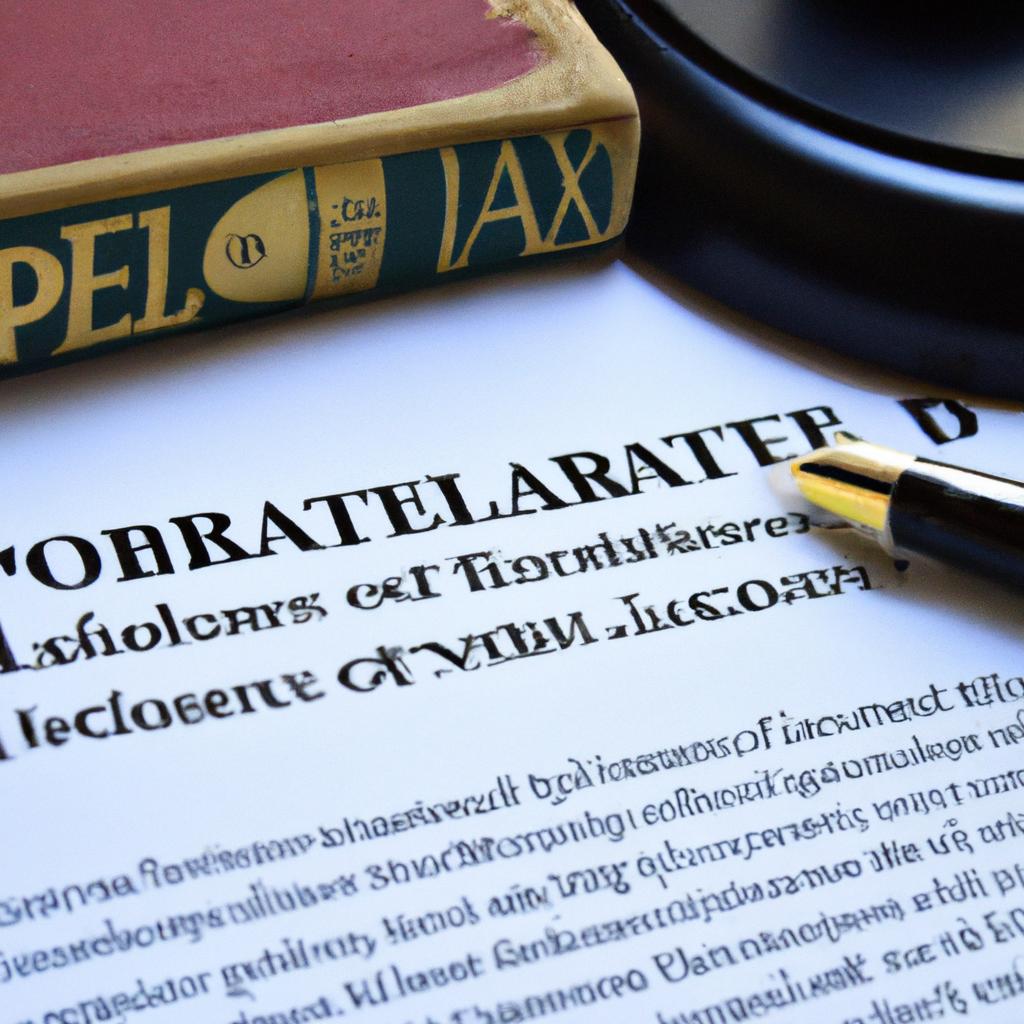When faced with the dual roles of executor and sole beneficiary of a loved one’s estate, the question of whether probate is necessary can be a complex and daunting one. As experienced lawyers in estate planning and probate matters, the team at Morgan Legal Group in New York City is well-equipped to provide guidance and clarity on this issue. Understanding the nuances of probate law and its implications is essential in navigating the legal process smoothly and effectively. In this article, we will delve into the intricacies of the executor and beneficiary roles, and explore the circumstances in which probate may or may not be required.
Key Considerations for Executors Who Are Also Sole Beneficiaries
As an executor who is also the sole beneficiary of a deceased individual’s estate, it is important to understand the responsibilities and potential challenges that may arise in this unique situation. One key consideration is the need for probate, which is the legal process of validating a will and distributing assets to beneficiaries. While being the sole beneficiary does not necessarily exempt you from probate, there are factors to consider to determine if it is necessary in your particular case.
- Estate Size: If the estate is small and consists mainly of personal belongings with no real estate or significant assets, probate may not be required.
- Debts and Creditors: If the deceased had outstanding debts or creditors, going through probate can help ensure that these obligations are properly settled before distributing assets.

Navigating the Probate Process as an Executor and Sole Beneficiary
As the executor and sole beneficiary of an estate, you may be wondering if you need to go through the probate process. While every situation is unique, in most cases, probate will be necessary to transfer assets from the deceased individual to you as the beneficiary. Probate is the legal process of administering the estate of a deceased person, which includes validating their will, paying off debts, and distributing assets to beneficiaries.
During the probate process, you will need to complete several important steps, including:
- Submitting the will to the court for validation
- Identifying and valuing the deceased’s assets
- Notifying creditors and paying off any outstanding debts
- Distributing the remaining assets to yourself as the sole beneficiary

Understanding the Legal Requirements for Probate in New York
When it comes to the legal requirements for probate in New York, it is important to understand the unique circumstances of each case. As the executor and sole beneficiary of an estate, you may wonder whether probate is necessary. In New York, probate is typically required when a deceased individual has assets solely in their name that exceed a certain value. Assets such as bank accounts, real estate, and investments may need to go through probate in order to be transferred to the rightful beneficiaries.
While you may be the sole beneficiary, it is still important to follow the legal requirements for probate in New York. By going through the probate process, you can ensure that the estate is properly distributed according to the deceased individual’s wishes and in compliance with state laws. Additionally, probate can help protect you from potential creditors or legal issues that may arise during the estate administration process.

Practical Steps for Executors and Sole Beneficiaries in Probate Proceedings
As an executor and sole beneficiary in probate proceedings, you may be wondering whether or not you need to go through the probate process. In most cases, if you are the sole beneficiary of an estate, probate may not be necessary. However, there are certain practical steps that you can take to ensure that the estate is properly administered and distributed:
- Review the Will: The first step is to carefully review the Will to understand the deceased’s wishes and how the assets are to be distributed.
- Gather Important Documents: Collect all important documents such as financial statements, insurance policies, and property deeds to determine the value of the estate.
- Notify Creditors: Inform creditors of the deceased’s passing and settle any outstanding debts.
| Step | Relevant Action |
|---|---|
| 1 | Review the Will |
| 2 | Gather Important Documents |
| 3 | Notify Creditors |
Q&A
Q: I am the executor and sole beneficiary of a loved one’s estate. Do I need to go through probate?
A: Whether or not you need to go through probate will depend on a few factors, such as the size of the estate and the specific laws in your state. It’s best to consult with a legal professional to determine the necessary steps to take.
Q: Can I handle the estate without going through probate?
A: In some cases, it may be possible to handle the estate without going through probate, especially if the assets are minimal or if there is a valid will in place. However, it’s important to carefully consider all legal requirements to avoid any complications down the line.
Q: What are the benefits of going through probate?
A: Going through probate can provide a structured and legal process for distributing assets, as well as ensuring that any debts or taxes owed by the estate are properly addressed. It can also help protect the executor and beneficiaries from potential disputes or challenges.
Q: Are there drawbacks to probate?
A: Probate can be a time-consuming and expensive process, as it often involves court fees, legal fees, and administrative costs. Additionally, the proceedings are a matter of public record, which may not be desirable for some individuals.
Q: How can I determine if probate is necessary in my situation?
A: To determine if probate is necessary in your situation, it’s best to consult with a legal professional who can review the specifics of the estate and provide guidance on the most appropriate course of action. They can help you understand the legal requirements and navigate the probate process effectively.
Key Takeaways
In conclusion, being both the executor and sole beneficiary of an estate may seem convenient but it does not exempt you from the probate process. It is important to follow the legal requirements and consult with a probate attorney to ensure a smooth and efficient administration of the estate. While probate can be a complex and time-consuming process, proper planning and guidance can help alleviate the burden and ensure that the deceased’s wishes are carried out effectively. Ultimately, seeking legal advice and taking the necessary steps will help you navigate through this challenging time with peace of mind.

